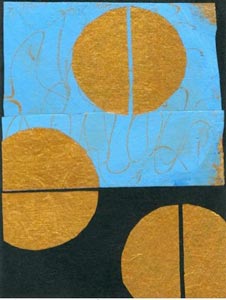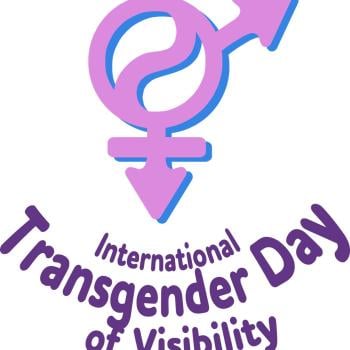By Jan Richardson
 Reading from the Epistles, Advent 1, Year C: 1 Thessalonians 3.9-13
Reading from the Epistles, Advent 1, Year C: 1 Thessalonians 3.9-13
While I was in New Brunswick, Canada, last weekend (a wondrous place to prepare to enter into Advent), I had the opportunity to preach at a United Church of Canada congregation in Riverview. One of the pastors invited me to be part of the children's time in worship, during which several of the children asked me a few questions. One of them asked me, "Do you like writing or making art more, and why?" As I shared my response, I told her what I often tell folks who ask me if I enjoy writing: I say, "I enjoy having written."
Even though I've understood myself as a writer nearly from the time I could first hold a pencil, and experience it as being at the core of my vocation and calling, the practice of writing is oftentimes a place of struggle and resistance for me. For the most part, I much prefer reaching the end of a piece of work than being in the midst of it. I have come, however, to understand this wrestling as part of the process: navigating and negotiating the struggle is part of the creative work. Still, there are moments of pleasure along the way that come as pure grace and help stir up my energy: times when the words come together in just the right way and I'm able to articulate -- or to allow the Spirit to articulate -- what it is that I want to say.
Many of the moments of grace and pleasure that I've found in the persevering, and that have helped stoke my endurance, have come in writing a series of blessings for the book. The book consists primarily of reflections that draw from the often hidden wellsprings of women's history and experiences in the Judeo-Christian tradition. Each reading closes with a blessing. With nearly two hundred readings, this means I have written a bunch of blessings. I won't say that the blessings have come easily. Yet I find that crafting blessings is more like composing poetry than like writing prose. Poetry seems to come from a different place in my soul than prose does, though they are kin and live in the same neighborhood. Whatever or wherever that poetry-generating place in me is, it's a space in which I move about with rather less resistance than when I'm writing prose, and that's been tremendously refreshing.
I also love the way in which writing a blessing is a very personal act that intentionally honors the reader. These blessings have come from my guts (to use a technical term): they've come from my deepest self in hopes of blessing the deepest self of another. I don't know into whose hands this book will make its way, but I have written each blessing with the desire that the words will come to the reader as a moment of grace amid whatever is stirring in the landscape of their life in that moment, and will help provide sustenance for the path ahead.
Whenever we offer a blessing, it is an intimate act that acknowledges that we are connected with another and that we desire the wholeness of that person -- or that place, or whatever it is that we are blessing. A blessing is a reminder that God has not designed us to live by our own devices: we are bound together with one another and with all of creation, and we are called to work for the well being of those whom we share this life with, and those who will follow. Offering a blessing is an act of profound hope. In blessing one another, we recognize and ally ourselves with the presence of God who is ever working to bring about the healing of the world.
In their introduction to the "Blessings and Invocations" section in their lovely book Earth Prayers, editors Elizabeth Roberts and Elias Amidon speak to the interconnectedness that characterizes creation, and how blessings are a way of responding to what one writer has called our state of being "inexplicably inextricable" (Southquest blog, "Cold Calling"). "...Some scientists," Roberts and Amidon write, "now recognize that each object in the world is not merely itself but involves every other object. All events are in some way interdependent, and everything we do affects the whole."
"Invoking the powers of the universe," they go on to say, "or bestowing our blessing on the Earth or other beings is neither a simple benevolent wish nor an act of hubris. Rather it is an act of creative confidence."
An act of creative confidence.
In his first letter to the church at Thessalonica, Paul offers such an act. Having written of the gratitude and joy that he feels because of the faithfulness of his beloved sisters and brothers there, and telling them of the prayers that he offers for them night and day, he offers powerful words of blessing. Praying that God may "direct our way to you," Paul (who is also writing on behalf of Silvanus and Timothy) tells his friends,




